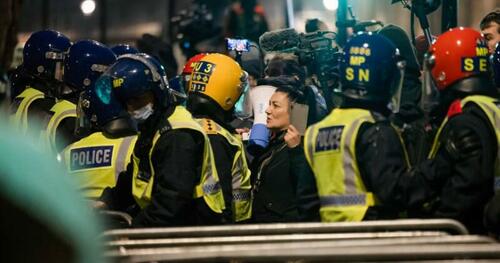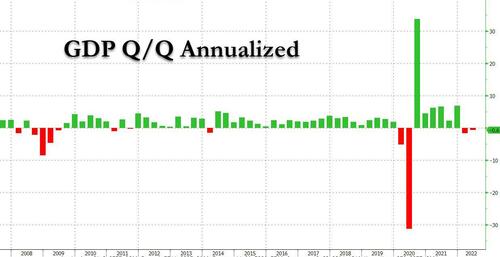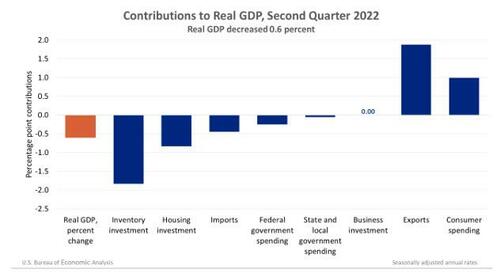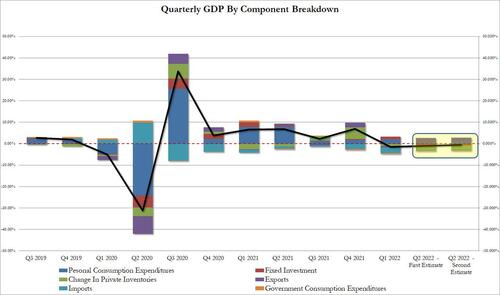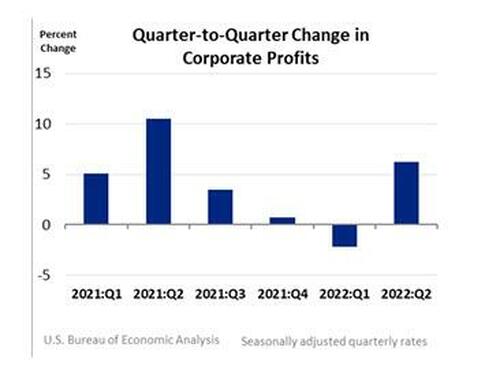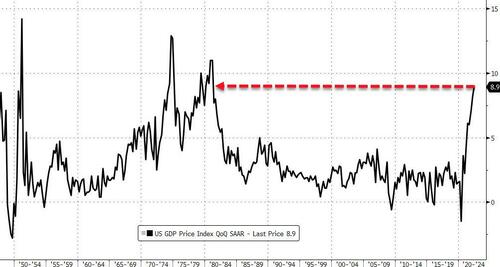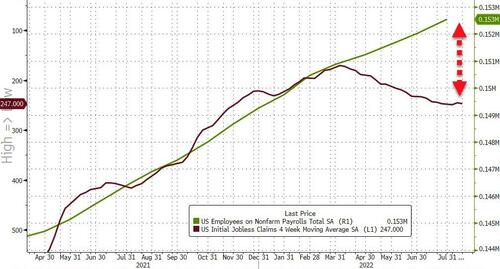This new article of mine will be coming out next year in the Journal of Law and Religion, and I thought I’d serialize it here; there’s still plenty of time for editing, so I’d love to hear people’s feedback. Here’s the rest of Part I.
[* * *]
Let’s now turn to some other areas beyond pseudonymity of litigants.
[A.] Allowing Subpoenas Used to Identify Defendants
So far we have discussed people who want to call on the coercive power of the court system without having to name themselves as plaintiffs. But people may also want to stop coercive subpoenas aimed at uncovering their identities as potential defendants. Those people’s concerns are often just about being fired or professionally blacklisted if they are identified as having publicly criticized their employer, or about being retaliated against by the government if they are identified as having publicly criticized government officials.[1] But sometimes the defendants also argue that they would be ostracized by their religious communities.[2]
Some defendants in lawsuits claiming copyright infringement by viewers and sharers of pornographic films, for instance, have sought pseudonymity based in part on the argument that “having my name or identifying or personal information further associated with the [porn film] is embarrassing, damaging to my reputation in the community at large and in my religious community”[3] (though it’s not clear how much weight that argument had in the courts’ decisions). Likewise, a potential defendant in a copyright case brought by the Jehovah’s Witnesses sought anonymity in part because “if Watch Tower discovers his identity, the revelation of his identity would damage or destroy his relationships with friends and family who are active members of the Jehovah’s Witness community”—”he has been part of the Jehovah’s Witness community his whole life, and so the pain of social exclusion would be overwhelming.”[4] A similar argument was made by an Orthodox Jewish blogger (“Orthomom”) whose identity was being sought, as a potential libel defendant, via a subpoena directed to her blog hosting company.[5]
Courts will sometimes allow defendants to resist a subpoena even apart from the effects on the defendants in their religious communities, especially if the court concludes that the lawsuit is likely to be legally unfounded[6] and the lawsuit is over “political, religious, or literary speech.”[7] But the question remains: Should such threat of stigma specifically within a religious community be part of the analysis, as the defendants in the just-cited cases argued?[8]
Note that here, unlike with plaintiff-side anonymity, the defendants often do seek to hide their identities even from their litigation adversaries, and not just from the public. And if the court concludes that plaintiff has a viable legal claim, then it would presumably deny the defendant’s request for total anonymity, since the plaintiff must be entitled to identify the defendant to gather information needed to allow the plaintiff’s case to go forward—for instance, information needed to establish the defendant’s state of mind, or to eventually satisfy a judgment against the defendant. Nonetheless, the court could still order that the defendant’s identity be revealed only subject to a protective order thar bars the plaintiff from revealing the information to others[9] (or perhaps even bars the plaintiff’s lawyers from revealing the information to plaintiff[10]).
[B.] Disclosing Information About Political Contributions and Political Petition Signatures
Political contributions—either to candidates or to independent advocacy groups that seek to influence elections—often have to be disclosed under campaign finance laws, and are then made available to the public. The same is true in many states for petition signatures (whether for initiative, referendum, recall, or candidate qualification).[11]
The Supreme Court has held that donor or signer information could be treated as confidential if there is sufficient evidence of likely “harassment” or “reprisals” against donors,[12] including firing by employers.[13] It’s not clear just what might qualify as harassment or reprisals, but some donors or signers might argue that they face a risk of ostracism by their religious community or even excommunication if their identities become known. (Imagine, for instance, people who would like to donate to a pro-abortion-rights initiative, or to sign such a petition, but are afraid of being shunned by their or their family’s religious group, which believes abortion is murder.)
[C.] Public Records
The possible reactions of a person’s religious community can likewise potentially affect judgments about anonymity in public records.[14] This is especially so as to license applications: For instance, New York law requires a license to possess a firearm, and the licenses are public records unless (among other things) the licensing offer finds that “the applicant has reason to believe he or she may be subject to unwarranted harassment upon disclosure of such information.”[15] Applicants could presumably claim, by analogy to the pseudonymity cases, that they belong to a pacifist religious community that frowns on firearms (or at least handguns),[16] and that disclosing their applications might prompt “unwarranted harassment” from coreligionists.[17]
Likewise, some states treat liquor licenses as public records.[18] These applications may have to include the names of individual corporate officers and shareholders,[19] and even if they just have the names of the corporate or LLC owner, public record documents for those entities will generally include the name of corporate officers. Some people might be reluctant to have their connection to alcohol businesses publicized, because they might be afraid the publicity will lead them to be condemned by their coreligionists. Public records laws may leave room for government agencies to accommodate such desire for privacy, if the laws have exceptions for when disclosure would produce “unwarranted harassment”[20] or would be “a clearly unwarranted invasion of privacy,” judged by “the customs, mores, or ordinary views of the community.”[21]
Marriage licenses are also public records in many states.[22] Some applicants might want the records concealed on the grounds that many in their religious community would condemn their particular marriage (e.g., because community members condemn interfaith marriages, or reject divorces and view a remarriage as bigamous).
Finally, more generally, public records laws can be used to disclose a wide range of other contacts between people and the government (such as arrest reports). In some situations, these disclosures could similarly jeopardize people’s standing in their religious communities, and public agencies might argue that they should redact those people’s names when releasing information in response to public records requests.[23]
[1] See, e.g., In re Anonymous Online Speakers, 661 F.3d 1168, 1173 (9th Cir. 2011) (discussing the “fear of economic or official retaliation”)
[2] For an example of the threat of such ostracism, levied against the writer of anonymous letter, see Brief of Appellee Rabbi Jack Bieler, Hager-Katz v. Mevlin J. Berman Hebrew Academy, 2010 WL 4890009, *7 (Md. Ct. Spec. App. Oct. 8, 2010) (quoting the rabbi’s letter):
This past Shabbat I suggested that this incident should inspire all of us to be extremely careful about engaging in Lashon HaRa [i.e., derogatory speech]. But in the event that the author’s identity can be incontrovertibly established, we think it additionally appropriate that this individual be welcomed neither into our synagogue nor our homes until such a time that she can demonstrate to the community’s satisfaction that full repentance has been achieved.
[3] See, e.g., In re BitTorrent Adult Film Copyright Infringement Cases, 296 F.R.D. 80, 90 (E.D.N.Y.), report & recommendation adopted sub nom. Patrick Collins, Inc. v. Doe 1, 288 F.R.D. 233 (E.D.N.Y. 2012)
[4] In re DMCA Subpoena to Reddit, Inc., No. 3:19-mc-80005-SK, at 4 (N.D. Cal. May 17, 2019).
[5] See Memorandum of Law of Proposed Intervenor “Orthomom” in Opposition to Petitioner’s Application for Pre-Commencement Disclosure, Greenbaum v. Google, Inc., No. 102063/07, 2007 WL 4162535, at (N.Y. Sup. Ct. N.Y. Cty. Mar. 13, 2007), granted, 18 Misc. 3d 185 (N.Y. Sup. Ct. 2007) (granting motion on the grounds that Orthomom’s posts weren’t libelous as a matter of law, and not discussing the religious ostracism concerns):
[S]ignificant community norms in the Orthodox Jewish community disapprove of criticizing leaders, and particularly of making those criticisms in ways that bring Jews or Judaism into disrepute outside the community. Critics and their families can be shunned, even deprived of their livelihoods because many Orthodox Jews work for businesses that are run by fellow Orthodox Jews, or that depend on Orthodox customers. . . . Some of Orthomom’s readers have specifically taken her to task for spreading “lashon hara,” or evil talk. Thus, Orthomom faces a serious risk within her community if, as a result of Greenbaum’s petition for discovery, she is identified as the author of these criticisms of wrongdoing within the community.
[6] Doe v. Cahill, 884 A.2d 451, 460 (Del. 2005); Dendrite Int’l, Inc. v. Doe, 775 A.2d 756, 760–61 (N.J. Super. Ct. App. Div. 2001).
[7] Compare Obi Pharma, Inc., v. Does 1-20, No. 16CV2218 H (BGS), 2017 WL 1520085, *3 (S.D. Cal. Apr. 27, 2017) (“Cahill itself involved political speech and appears to be reserved for ‘political, religious, or literary speech.'”), with Ciabattoni v. Teamsters Loc. 326, No. N15C-04-059 VLM, 2018 WL 2418388, *3 (Del. Super. Ct. May 29, 2018) (“Plaintiff’s argument that Cahill only applies to political speech is without merit.”).
[8] See, e.g., Mobilisa, Inc. v. Doe, 170 P. 3d 712, 720 (Ariz. Ct. App. 2007) (concluding that, in consider whether to enforce a subpoena in such a case, courts should look beyond just the legal validity of the plaintiff’s claims and also engaging in a “a balancing step” in which they could consider, among other things, “the potential consequence of a discovery order to the speaker”); In re Indiana Newspapers Inc., 963 N.E.2d 534, 552 (Ind. Ct. App. 2012) (same).
[9] See, e.g., In re BitTorrent Adult Film Copyright Infringement Cases, 296 F.R.D. 80, 90 (E.D.N.Y.), report and recommendation adopted sub nom. Patrick Collins, Inc. v. Doe 1, 288 F.R.D. 233 (E.D.N.Y. 2012).
[10] See, e.g., Strike 3 Holdings, LLC v. Doe, No. 20CIV4501WFKVMS, 2021 WL 535218, *7 (E.D.N.Y. Feb. 12, 2021).
[11] See, e.g., Doe v. Reed, 561 U.S. 186 (2010).
[12] Id. at 200; Brown v. Socialist Workers ’74 Campaign Comm., 459 U.S. 87, 100 (1982).
[13] Brown, 459 U.S. at 99.
[14] I use “anonymity” and “pseudonymity” largely interchangeably here, as do the cases dealing with pseudonymity in litigation; whether it’s sealing a license application entirely (which would in effect provide for anonymous licensing), or replacing a litigant’s or applicant’s name with “Jane Doe” or initials or the like, the point is that the person’s name will be concealed from the public (though, in litigation, not from the adversary, see supra note 8).
[15] N.Y. Pen. L. 400.00(5)(b)(iii).
[16] See, e.g., Amish America, Do Amish Use Guns?, https://ift.tt/37p5XMB (“Amish will not bear arms against others, but they do use firearms for hunting and other purposes”).
[17] I set aside here the special case of when parental notification requirements for abortion can be overridden because a court is persuaded that such parental notification would be against the child’s best interests. Compare Planned Parenthood, Sioux Falls Clinic v. Miller, 63 F.3d 1452, 1460 (8th Cir. 1995) (holding that such exemptions from parental notification are constitutionally required), with Planned Parenthood of Blue Ridge v. Camblos, 155 F.3d 352, 367 (4th Cir. 1998) (holding the contrary). (Even if Roe v. Wade and Planned Parenthood v. Casey are overruled, such questions would likely still arise under many states’ abortion laws.) Presumably when there is such a best-interests override, the anticipated reactions of parents—and whether judges would see those reactions as excessive and therefore harmful to the child—would be considered, and that would include religiously motivated reactions. But this would presumably limited to the attitudes of the parents, whether religious or not, and wouldn’t focus on the reactions of their religious community more broadly.
[18] See, e.g., Wash. State Liquor & Cannabis Bd., On Premises, Licensees, https://ift.tt/6xo7fCk.
[19] See, e.g., Cal. Dep’t of Alcoholic Beverage Control, Individual Personal Affidavit, https://ift.tt/56PnejN.
[20] See, e.g., Freedom Watch, Inc. v. Mueller, 453 F. Supp. 3d 139, 157 (D.D.C. 2020) (applying “unwarranted harassment” test under FOIA), appeal dismissed, No. 20-5071, 2020 WL 4931696 (D.C. Cir. July 30, 2020)
[21] Michigan Fed’n of Teachers & Sch. Related Pers., AFT, AFL-CIO v. Univ. of Michigan, 481 Mich. 657, 662 (2008) (cleaned up).
[22] Compare, e.g., Vt. Stat. Ann. § 5132 (treating marriage licenses as public records) with Cal. Family Code §§ 500–511 (generally allowing for confidential marriages, so long as the parties have lived together before marriage).
[23] Cf. Holy Spirit Ass’n for Unification of World Christianity, Inc. v. U. S. Dep’t of State, 526 F. Supp. 1022, 1034 (S.D.N.Y. 1981) (withholding the names of people who had alleged misconduct on religious group’s part, because “[t]o disclose the names could subject these individuals to the fear of harassment and needless humiliation”).
The post Protecting People from Their Own Religious Communities: Subpoenas, Political Disclosures, Public Records appeared first on Reason.com.
from Latest https://ift.tt/ErcLeXd
via IFTTT



